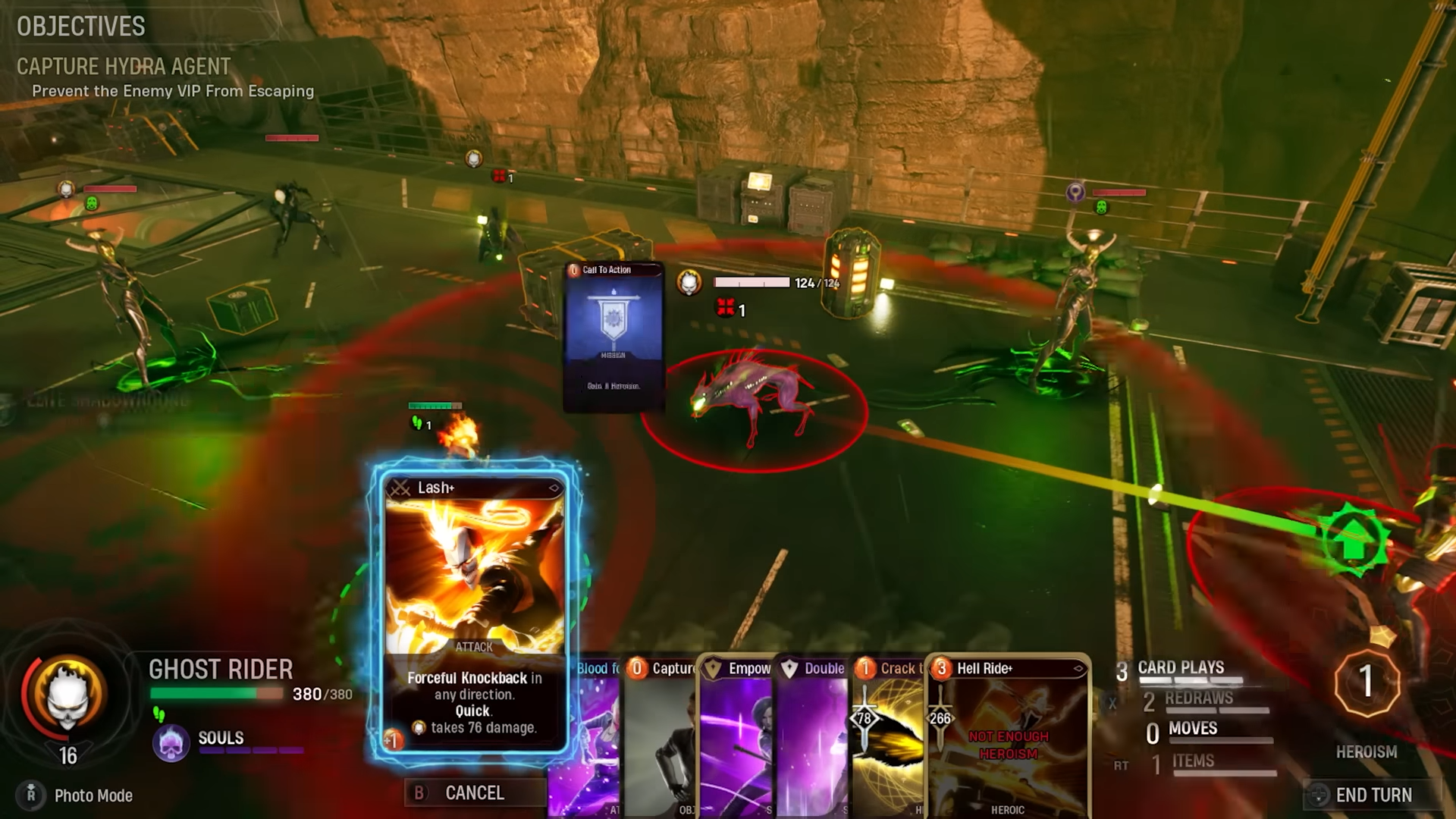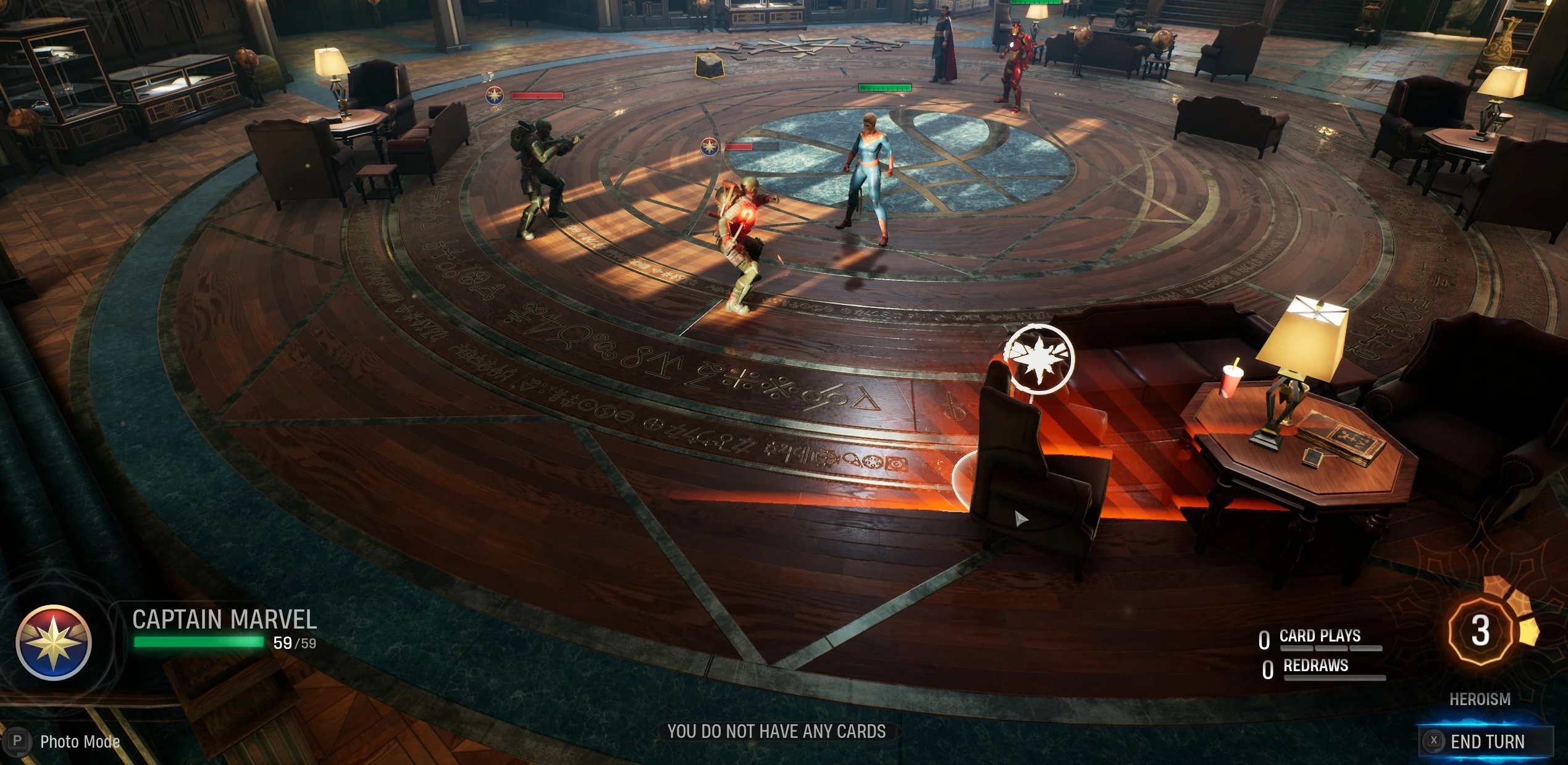It is, but in a very light sense
I’ve seen a lot of questions lately asking if Marvel’s Midnight Suns is a card game or not. And at a glance, it’s kind of a hard thing to discern!
I went into the game largely blind, and was surprised to find a mix of many different genres and staple strategy games all combined into one. Here’s how Midnight Suns works, and how it actually plays out.
Midnight Suns is a strategy game where you pick your moves based on cards
In Midnight Suns, players will battle waves of enemies in mostly circular arenas, with several party members from the Marvel universe: on top of the new protagonist that’s unique to Midnight Suns.
Part of the meta-strategy of the game involves using cards, which essentially translate to abilities in an RPG: things like dealing damage, healing, buffing (making party members better), debuffing (making enemies weaker), and so on.
While you do get the opportunity to build your deck and change your tactics eventually, early on you’ll mostly be using a starter deck series of cards, which translate to easy-to-understand effects and abilities. Initially, you’ll only have eight cards to play with, but more cards will be earned through progressing in the game.
These are the three main types of cards in Midnight Suns:
- Attacks (your main source of reliable damage)
- Skills (some sort of support action)
- Heroics (big damage that you can use after using enough other cards)
You’ll cycle through these each turn, redraw, then the enemy will go. Rinse and repeat until one of you prevails. Of course, there are some other nuances!

You can manipulate your cards, too
Several effects can alter, enhance, or completely change your deck. Here’s a brief list of a few examples
- Players get a certain amount of redraws per turn, which let them cycle out cards they can’t afford (like heroics, with no heroic meter) or can’t use properly at the current time
- “Quick” cards can refund actions, so you can chain cards together
- Some cards can offer deck or hand manipulation outright as part of their card effect: Doctor Strange is an early example
Keep the age-old “Mana Curve” philosophy in mind
In Magic: The Gathering (and many other games), there’s a basic principle of the “Mana Curve” that you should keep in mind when choosing cards.
If you pick all high-cost cards [heroics], you’re going to have a bad time actually building up enough power to play those cards. If you play all lower-cost cards, you won’t have any big bombs that can help in a pinch: like single-target damage that can make a boss fight that much easier, or an area-of-effect (AOE) ability that can clear out multiple enemies.
Keep this concept in mind when making decks! Just have the mana curve in the back of your head, and you’ll be fine.





